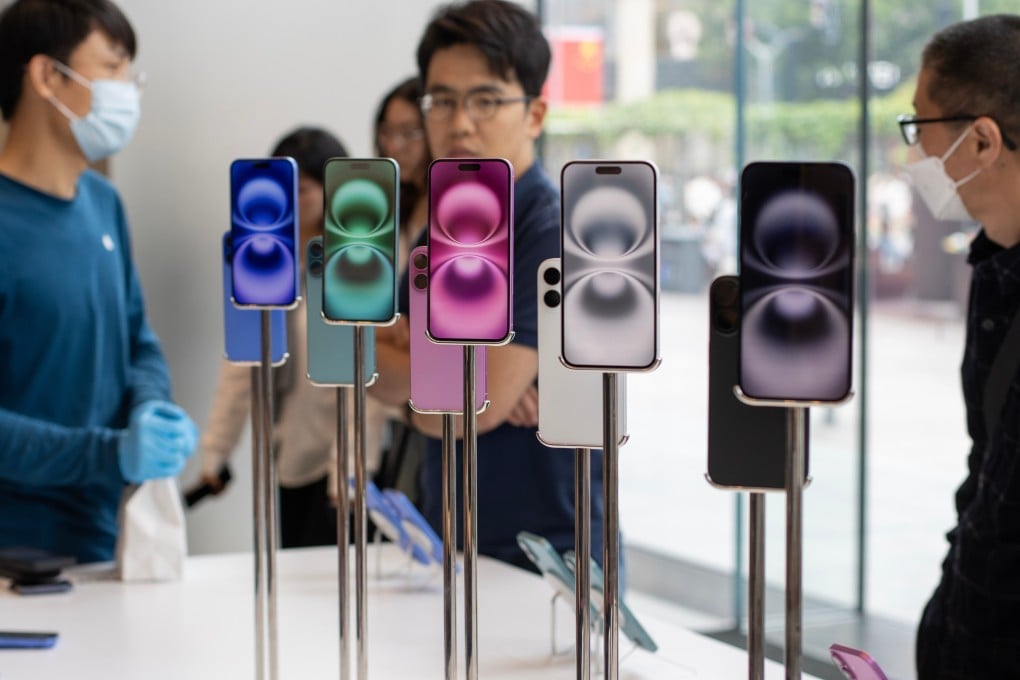Advertisement
Apple’s iPhone 16 sees price cuts on Chinese online platforms for Singles’ Day promotions
Alibaba’s Tmall, JD.com and Pinduoduo introduced further iPhone 16 discounts as part of their respective Singles’ Day campaigns
Reading Time:2 minutes
Why you can trust SCMP
6

Iris Dengin Shenzhen
Apple has seen iPhone 16 prices slashed by up to 1,600 yuan (US$225) at its online store on Alibaba Group Holding’s Tmall platform, as the US tech giant looks to boost sales on Singles’ Day, the world’s biggest shopping festival, amid stiff competition in China.
Under its Singles’ Day promotion, Apple’s Tmall store started offering a 500-yuan voucher for all iPhone 16 models from 8pm on Monday, according to a Tmall announcement on Sunday. Prices for the basic iPhone 16 model and the premium iPhone 16 Pro Max start from 5,499 yuan and 9,499 yuan, respectively.
Tmall has also offered an extra trade-in subsidy of as much as 1,100 yuan, which will enable Chinese consumers to enjoy a discount of up to 1,600 yuan on their iPhone 16 purchases. Alibaba owns the South China Morning Post.
Alibaba’s e-commerce rival JD.com also announced on Sunday a similar discount scheme on its platform for the iPhone 16 series, adding a one-year free AppleCare+ subscription on the basic and Plus models.
Budget-shopping platform Pinduoduo, which had offered iPhone 16 discounts ahead of Apple’s official release on September 20, on Monday cut prices further. The 256-gigabyte version of the popular iPhone 16 Pro Max model now sells for 9,199 yuan, about 800 yuan lower than its original price.

The latest discounts reflect Apple’s efforts to overcome the initial tepid reaction received by the iPhone 16 on Chinese social media, as Apple Intelligence – the US firm’s on-device artificial intelligence (AI) system – will not be available in the Chinese language until next year.
Advertisement